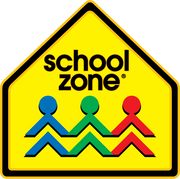Math is much more than counting and calculations. And learning it well is about much more than math class and math tests. Mathematician Paul Halmos was known to say, "The only way to learn mathematics is to do mathematics." Sounds basic, right? Yet it can be easy to forget or overlook. We may also forget that math can be good for us, good for kids in ways that are all too easy to miss.
We all know that basic math is important for everyday tasks involving numbers and quantities, but the many ways it can affect well-being can be harder to see. Here are some of the benefits daily math practice offers young learners:
- Improves problem-solving skills
- Boosts confidence in math abilities
- Strengthens memory and cognitive skills
- Encourages a positive attitude towards learning
For more information on the importance of math, check out the article "Why Is Math Important? 9 Reasons Why Math Skills Improve Quality of Life" by Ashley Crowe for Prodigy.
Benefits of addition practice workbooks
Addition practice workbooks are a fantastic way to help children reinforce their math skills. A few pages a day can add up. Here's how these workbooks can benefit your child:
- Reinforcement of Math Skills: Regular practice helps children understand and remember addition concepts better.
- Cognitive Benefits: Engaging in math exercises can improve problem-solving skills and logical thinking.
- Developmental Milestones: Working on addition helps children reach important developmental milestones in their early years.
Some years back, APA's Developmental Psychology journal published "Early Math Matters: Kindergarten Number Competence and Later Mathematics Outcomes." The study showed that "kindergarten number competence predicted rate of growth in mathematics achievement between 1st and 3rd grades as well as achievement level through 3rd grade."
Addition practice workbooks for different age groups
It's important to use age-appropriate addition practice workbooks to match your child's developmental stage. Here's a breakdown of what to look for:
- Preschool: Simple workbooks with pictures and basic addition problems (e.g., adding numbers up to 5).
- Kindergarten: Slightly more complex problems, often involving sums up to 10. These might include visual aids like number lines.
- 1st Grade: Workbooks that focus on adding larger numbers, often up to 20. These may include word problems and more abstract representations of addition. Here are three workbooks for this age groupfrom School Zone: Math Basics (Grade 1), Word Problems (Grades 1-2), and Addition & Subtraction (Grades 1-2).
More about addition for 1st graders
First graders are at a crucial stage in their math development. They are building on basic skills and starting to tackle more complex problems. Addition practice workbooks tailored for 1st graders can help reinforce these skills. Here are some key concepts and skills that 1st graders should master:
- Understanding and using addition facts up to 20
- Solving simple word problems involving addition
- Using visual aids like number lines and counters
- Learning to add two-digit numbers without carrying
First grade math workbooks often include:
- Simple addition problems
- Word problems that require addition
- Colorful and engaging visuals to keep kids interested
- Games and puzzles to make learning fun
For first graders, mastering early concepts is crucial. It helps them build a strong foundation for future higher-level math skills.
Making math fun with addition games
Using addition games alongside workbooks can make learning addition even more fun and engaging for kids. Here are some creative ideas to get started:
- Math Bingo: Create bingo cards with addition problems. Kids solve the problems and mark the answers on their cards.
- Flash Card Races: Use addition flash cards for a timed race. See how many problems kids can solve in a minute. You can find a variety of School Zone flash cards here.
- Interactive Apps: There are many apps available that turn addition practice into a game. These can be a great way to keep kids entertained while they learn. School Zone's online learning program Anywhere Teacher offers dozens of games, interactive worksheets, and other activities for practicing math skills.
- Board Games: Incorporate addition into classic board games. For example, kids can roll two dice and add the numbers together to move their pieces.
For more ideas on making math fun, explore "15 Creative Ways to Make Math Fun for Your Students," by Maria Kampen for Prodigy.
Tips for parents and educators
To recap, using addition practice workbooks effectively can make a big difference in a child's math skills. Here are some practical tips for parents and educators:
- Set Up a Routine: Consistency is key. Establish a regular time each day for math practice. This helps children know what to expect and builds a habit.
- Create a Positive Learning Environment: Find a quiet, well-lit space for your child to work. Make sure it's free from distractions to help them focus.
- Use Encouragement: Positive reinforcement goes a long way. Praise your child's efforts and progress to keep them motivated.
- Track Progress: Keep a record of completed workbooks and monitor improvements over time. This helps identify areas where your child might need more practice.
- Mix It Up: Combine workbooks with other activities like addition games to keep learning fun and engaging.
- Be Patient: Every child learns at their own pace. Be patient and give them the time they need to understand the concepts.
In summary, addition practice workbooks are a valuable tool for helping children develop strong math skills. Daily practice, combined with a supportive learning environment, can make a significant difference in their math competence.
Explore the range of educational materials available on the School Zone website including workbooks, flash cards, and learning kits. For ongoing educational support, consider subscribing to School Zone's online learning program, Anywhere Teacher for a steady stream of high-quality learning resources.











